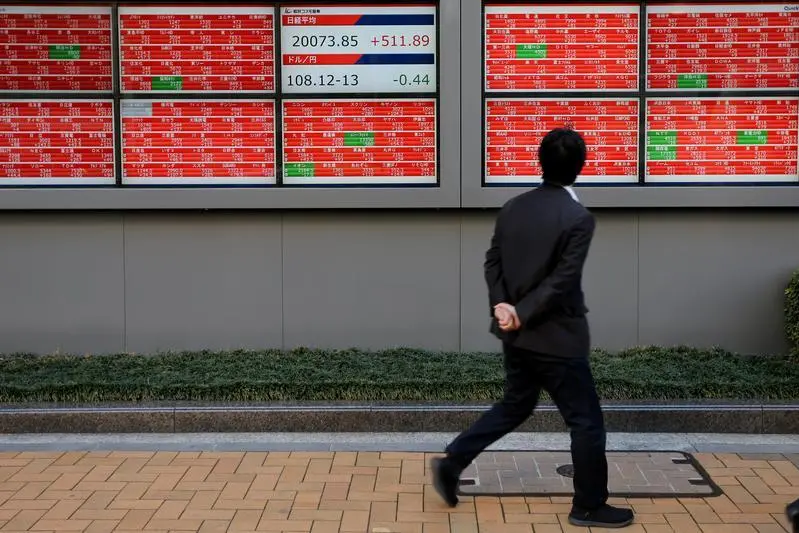PHOTO
SINGAPORE: Falling bank stocks drove Asian markets lower on Friday, while bonds rallied and expectations for U.S. interest rate rises were reduced after a surprise capital raising at a Silicon Valley startup lender unleashed fears of broader banking-system stress.
The yen weakened after the Bank of Japan opted to keep stimulus settings steady at Governor Haruhiko Kuroda's last meeting in charge, as expected. The currency was last down about 0.4% at 136.63 per dollar after a knee-jerk drop of as much as 0.6%.
Japan's Nikkei fell 1.23% in the morning session, with the BOJ decision coming during the lunch break.
MSCI's broadest index of Asia-Pacific shares outside Japan fell 1.5% to a two-month low, with banks and Hong Kong tech stocks leading losses.
S&P 500 futures were down 0.56%, following the cash index dropping 1.8% and falling below its 200-day moving average.
The U.S. dollar rose and short-end Treasuries extended sharp overnight gains - driving two-year yields down another nine basis points to 4.8068%.
Fed funds futures also rallied strongly, pulling the market-implied peak in U.S. rates from above 5.6% to just below 5.5%, and pricing about a 50% chance of a 50 basis point Fed hike this month, down from more than 70% a day earlier.
The sharp moves followed SVB Financial Group, parent of startup-lender Silicon Valley Bank, noting higher-than-expected "cash burn" from clients, falling deposits and rising costs of capital. It announced an equity sale hours after crypto-focused lender Silvergate said it was closing down.
SVB stock was still sliding after the bell and has lost about 70% of its value in 24 hours. Shares of big banks were dragged down with it, with J.P. Morgan Chase & Co losing 5.4%, Citigroup down 4.1% and big lenders in Asia and Australia on the slide - albeit to a lesser extent - on Friday morning.
"I think there's speculation that there are wider problems within the U.S. banking system, or there's that potential, and that's caused a re-think of Fed policy," said ING economist Rob Carnell in Singapore.
"The thinking is that if what the Fed's doing is causing this distress, then perhaps they won't be doing that much more," he said.
"But it's a big move on the back of what seems to be some fairly woolly speculation...which just shows how antsy the markets are right now, and this has spilled into all the other markets."
Surprisingly high U.S. jobless claims have offered a weak entree for broader U.S. employment data later on Friday, putting some pressure on recent dollar gains.
The figures loom as a crucial barometer of the health of the U.S. labour market and the direction of interest rates after Fed Chair Jerome Powell warned rates could rise further and faster if data shows that is needed to get a grip on inflation.
Bitcoin was nursing losses just above the psychological $20,000 level as the fallout from the demise of Silvergate weighs on the broader mood in digital assets.
Brent crude futures were pinned at $81.55 a barrel and gold at $1,831 an ounce.
(Editing by Simon Cameron-Moore and Kim Coghill)




















